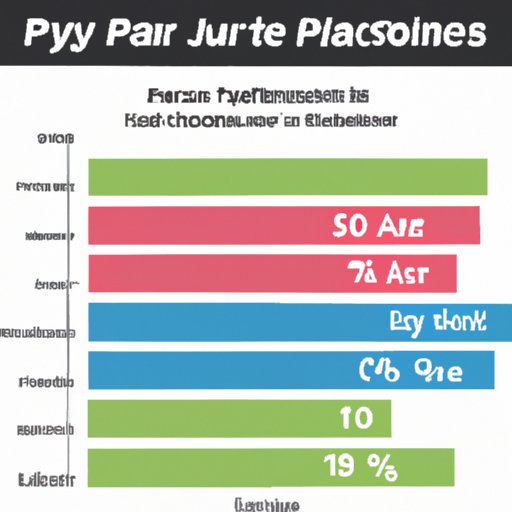Introduction
Health care is a rapidly growing industry with a wide range of job opportunities. Health care professionals provide essential services to individuals, families, and communities, helping to ensure that everyone has access to quality medical care. But what do health care jobs pay?
The average salary for health care professionals varies widely depending on factors such as education, experience, specialization, and location. According to the Bureau of Labor Statistics, the median annual wage for health care practitioners and technical occupations was $63,420 in 2019.
How to Maximize Your Earning Potential in Health Care
If you’re considering a career in health care, there are several ways to maximize your earning potential. Education and training are key, as most health care positions require at least a bachelor’s degree. Additional certifications can also lead to higher salaries. Specializing in a particular area of health care, such as nursing or physical therapy, can also increase earning potential.

A Comparison of Pay Rates Among Different Types of Health Care Jobs
The pay rate for health care professionals varies depending on the type of job. Physicians tend to earn the highest salaries, followed by nurses and other allied health professionals. Administrative and support staff typically earn lower salaries than clinical workers.
Physicians
Physicians are among the highest-paid health care professionals. According to the Medical Group Management Association’s 2020 Physician Compensation and Production Survey, the average salary for physicians across all specialties was $386,000 in 2019. Primary care physicians earned an average of $243,000 while specialists earned an average of $346,000.
Nurses
Registered nurses (RNs) are among the most in-demand health care professionals. The median annual wage for RNs was $73,300 in 2019, according to the Bureau of Labor Statistics. Advanced practice registered nurses (APRNs), such as nurse practitioners, earn higher salaries than traditional RNs; the median annual wage for APRNs was $109,820 in 2019.
Allied Health Professionals
Allied health professionals, including physical therapists, occupational therapists, speech-language pathologists, and medical laboratory technologists, earn salaries that vary depending on their specialty and level of experience. According to the Bureau of Labor Statistics, the median annual wage for physical therapists was $89,440 in 2019, while the median annual wage for occupational therapists was $84,270.
Administrative and Support Staff
Administrative and support staff, such as medical coders and billing specialists, typically earn lower salaries than clinical workers. The median annual wage for medical records and health information technicians was $40,350 in 2019, according to the Bureau of Labor Statistics.

The Impact of Location on Health Care Job Salaries
Location can have a big impact on health care job salaries. Geographic variations in wages can be attributed to differences in the cost of living, local demand for health care services, and availability of qualified health care professionals. For example, the average salary for physicians in New York City is significantly higher than the average salary for physicians in rural areas.
Cost of living can also affect salaries. In areas with a high cost of living, health care professionals may need to earn higher salaries to cover basic expenses. This means that health care jobs in these areas may pay more than similar positions in areas with lower costs of living.
Which Health Care Jobs Offer the Highest Paying Salaries?
Physicians typically earn the highest salaries in the health care industry. According to the Medical Group Management Association’s 2020 Physician Compensation and Production Survey, the top five highest-paying specialties for physicians are:
- Surgeons ($511,000)
- Anesthesiologists ($497,000)
- Oral and maxillofacial surgeons ($459,000)
- Orthodontists ($447,000)
- Psychiatrists ($441,000)
Nurses can also earn high salaries, particularly if they specialize in a particular area of nursing or pursue advanced degrees. Nurse practitioners, for example, earned a median annual wage of $109,820 in 2019, according to the Bureau of Labor Statistics.
Conclusion
Health care jobs can be highly rewarding and offer competitive salaries. However, wages vary widely depending on factors such as education, experience, specialization, and location. Physicians typically earn the highest salaries in the health care industry, followed by nurses and other allied health professionals. To maximize earning potential in health care, it is important to pursue additional education and certifications and specialize in a particular area. Location can also have a significant impact on wages, with certain areas offering higher salaries than others.
By understanding the factors that affect salaries in the health care industry, you can make informed decisions about your career path and maximize your earning potential.
(Note: Is this article not meeting your expectations? Do you have knowledge or insights to share? Unlock new opportunities and expand your reach by joining our authors team. Click Registration to join us and share your expertise with our readers.)
